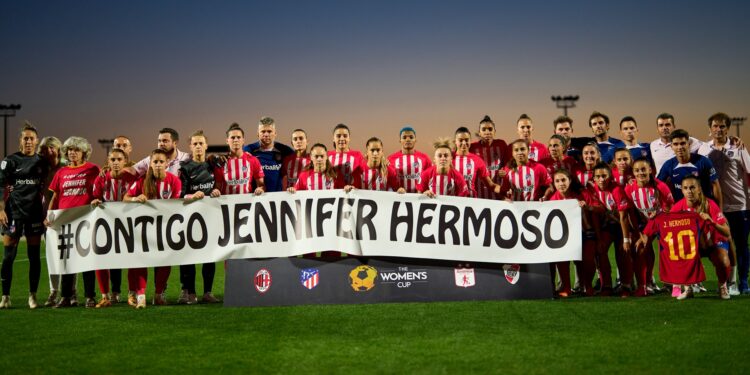How One Man’s Actions Overshadowed Spain’s Women’s World Cup Win
Spain’s big win at the Women’s World Cup on August 20 should have been a happy moment. Instead, it’s been clouded by drama. The Royal Spanish Football Federation (RFEF) is facing a lot of backlash. People can’t stop talking about a big scandal instead of celebrating Spain’s 1-0 victory over England.
At the center of this mess is the suspended RFEF president, Luis Rubiales, and the national team manager, Jorge Vilda. Both are under fire following an incident that happened at the award ceremony.
The Incident: August 20
After Spain won their first Women’s World Cup, Rubiales was congratulating each player on stage. When he got to Jennifer Hermoso, he grabbed her face and kissed her without her okay. Hermoso later said on social media that she “didn’t like” what happened.
Rubiales and the RFEF tried to play it down, claiming it was a mutual thing. But soon, reports showed that Hermoso and her family faced pressure to support Rubiales’ version of events.
Longstanding Issues: A Toxic Environment
This scandal didn’t come from nowhere. There have been growing tensions in Spanish women’s football for years. After Spain lost to England in the Euro 2022, team captains, including Hermoso, tried to talk to Vilda about concerns. Their worries included:
- Questionable coaching methods
- Bad training conditions
- Lack of support for the women’s team
Players criticized Vilda’s way of managing. He allegedly wanted players to leave their hotel doors open at night and would check their bags.
Fifteen players signed a letter saying they wouldn’t play for the national team until things changed. The RFEF reacted by leaking the letter, shaming the players, and demanding they “apologize.” These players became known as “Las 15.”
August 20–27: The Growing Scandal
August 20: Rubiales’ strange behavior didn’t stop at the kiss. He was seen acting inappropriately during the match, grabbing his crotch. He also hugged players too much and kissed Olga Carmona on the cheek.
August 21-22: People were outraged. Spain’s acting Minister for Culture and Sport, Miquel Iceta, called Rubiales’ actions “unacceptable.” After some pressure, Rubiales made a video apology, claiming the kiss was “spontaneous,” but it didn’t satisfy everyone.
August 23: Tamara Ramos, a former employee, accused Rubiales of workplace harassment. She shared stories of inappropriate actions that showed a pattern of bad behavior.
August 25: Rubiales made a shocking announcement, saying he would not resign. He blamed “false feminism” and offered Vilda a new contract worth €500,000 a year. This made many people angry.
Hermoso released a statement saying the kiss was not consensual. She called Rubiales’ actions “manipulative and aggressive,” sharing how long players had dealt with mistreatment.
FIFA Steps In: August 26
FIFA has now suspended Rubiales for 90 days and started an investigation. They told him and the RFEF to stay away from Hermoso. In support of her, players, teams, and fans across the world were seen holding signs saying “Contigo Jenni” (With You, Jenni).
Eighty-one Spanish players said they wouldn’t play until Rubiales resigned. Male footballer Borja Iglesias also stepped away from national duties. The support poured in from teams like the Lionesses and players in the NWSL.
August 27–29: The Federation in Chaos
August 27: The RFEF made a statement accusing Hermoso of lying but later backed down. This led to 11 coaching staff members resigning in protest, although Vilda stayed in his job. Under pressure, Vilda finally spoke against Rubiales, trying to show he was separate from him.
August 29: RFEF leaders unanimously called for Rubiales’ resignation and changes in how the organization runs. Meanwhile, Rubiales’ mother started a hunger strike, claiming her son was being unfairly treated.
Spanish prosecutors have also opened an investigation into the alleged sexual assault, adding more pressure on Rubiales.
The Path Forward
This scandal has opened up a much-needed conversation in Spanish football. Issues of abuse and sexism are now front and center. While Spain’s Women’s World Cup victory should have been a time for joy, it has instead sparked a call for change. Players, officials, and fans want accountability, making the future of the RFEF and Spanish football very uncertain.























